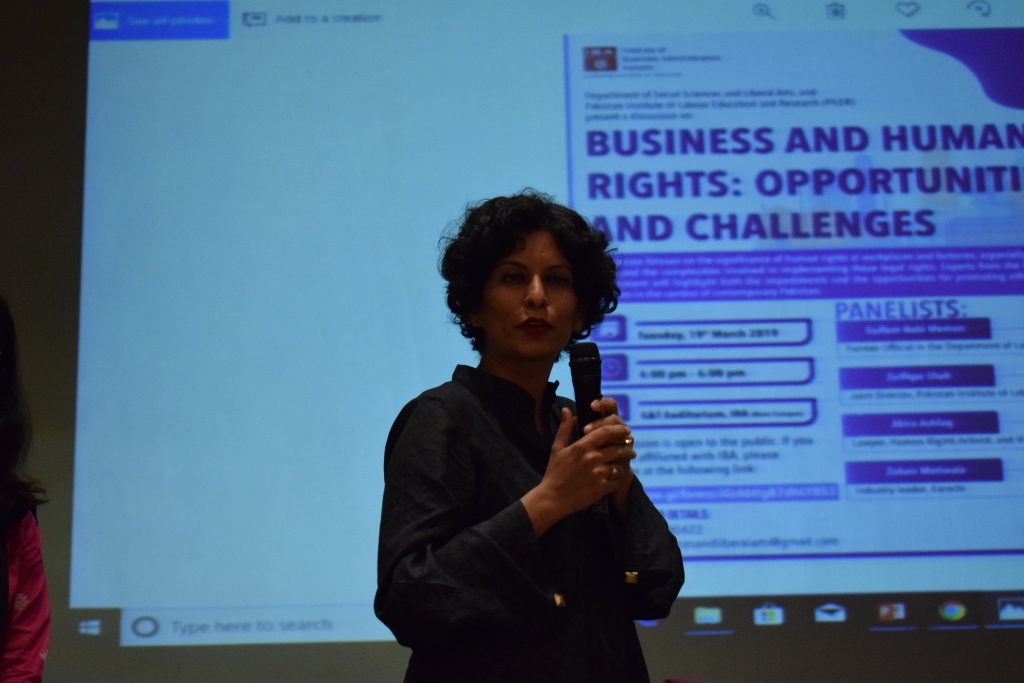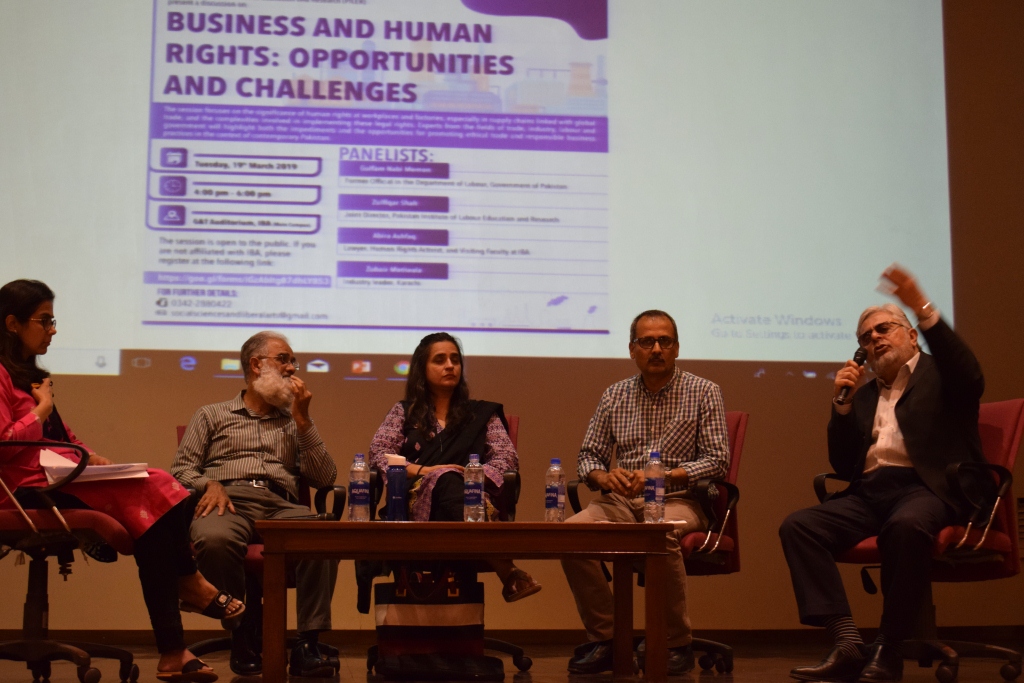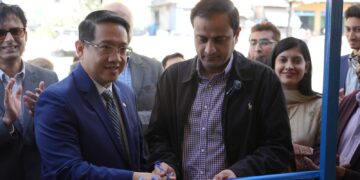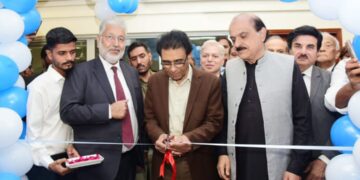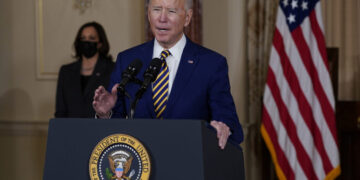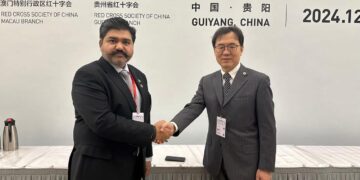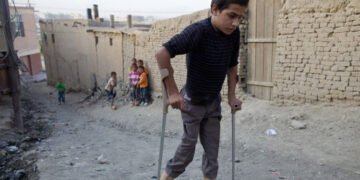KARACHI – Department of Social Sciences and Liberal Arts, Institute of Business Administration (IBA), Karachi and the Pakistan Institute of Labour Education and Research (PILER) organized a panel discussion titled Business and Human Rights: Opportunities and Challenges at the IBA, Karachi main campus.
The panel comprised of former President of the Karachi Chamber of Commerce and Industry and former advisor to Chief Minister Sindh on investment, Zubair Motiwala; visiting faculty of law at IBA and human rights activist who also works with social movements, Abira Ashfaq; former Joint Director, Labour Department of Sindh, Government of Pakistan, Gulfam Nabi Memon; and Joint Director, PILER, Zulfiqar Shah. Chair of Social Sciences and Liberal Arts Department at IBA Karachi, Dr. Faiza Mushtaq introduced the session.
The session sought to explore the increasing global focus on ethics in trade. Pakistan is particularly at the center of this debate as it holds a prominent position in agriculture and textile value chain exports. Pakistan has also been granted the Generalized System of Preferences (GSP+) status starting in 2014 that allows tariff-free exports to Europe in return for compliance to a set of international treaties and conventions, related to human rights and labor rights. The discussion particularly focused on the working conditions, health and occupational safety hazards, labor and workplace laws and the issue of low wages in the country, among other aspects related to participation of Pakistani labor in global trade.
The discussion also steered towards the processes adopted to ensure compliance with rights standards and best practices at the workplace and whether such mechanisms were effective enough or not.
The diverse set of panelists shared their expertise on the subject matter. Explaining the significance of GSP+ for Pakistan, Mr. Shah noted that while it has raised export revenues, the status is symbolic of the emerging reality that trade is not just associated with producing and selling items, it is now also linked with the provision of human rights and labor rights in businesses. “The world is now looking at the business sector to ensure human rights are protected at their workplaces and daily operations” he added.
Mr. Shah also stated that Pakistan stands on the sixth position when it comes to labor bondage and the 2012 Baldia fire tragedy, repeated fire accidents and the recent incident at Clifton’s Marina Tower, which killed six construction workers, are just a few examples of the compromised structure of labor rights in the country.
Ms. Ashfaq spoke about the plight of home-based workers who produce at the low end of the global supply chain. “Home-based workers work in isolation under compromised conditions and do not get the rights that those working on factory floors do,” she said. Even though Pakistan has signed and ratified several treaties when it comes to human rights and labor rights, it is important to note that in terms of laws to implement them, not much is being done on the ground to ensure that workers reap the benefit.
Representing the trade and business community in Pakistan, Mr. Motiwala said that it isn’t easy for any business to remain aloof and not abide by the rules and laws that exist in the country. He said that it isn’t easy selling the ‘Made in Pakistan’ brand around the world, as we have issues ranging from high production cost and quality deficits to challenges like terrorism and human rights violations associated with our name. “Therefore, our exports do not increase or surpass US$24-25 million and we have to be more competent than other countries in the South Asian region to exceed it. Making Pakistan sellable as a brand is important to have a better economy.”
Mr. Memon shed light on the various legislations that have been done in Pakistan to comply with human rights and labor rights conventions. He said that the Sindh government took various steps to ensure legislation in favor of labor including home-based workers and child labor in the province. He discussed Sindh’s provincial administration conducting a child labor survey in collaboration with UNICEF.
Responding to a question regarding social audits and why the condition of labor inspection is weak in Pakistan, Mr. Memon admitted that corruption is a reality in the labor department. “There is a lack of political will, the capacity deficit in officers and the trend of unfair recruitments among a lot of other issues that affect the performance of the concerned departments.”
Ms. Ashfaq drew attention to the problematic structure of trade liberalization that seeks to exploit labor in developing countries for excessive consumption. “There is a need to end the dichotomy between dreamy human rights aspirations and the real complexities of business because all stakeholders are interconnected in solving these issues.”
The session ended with a Q/A session with the audience.


